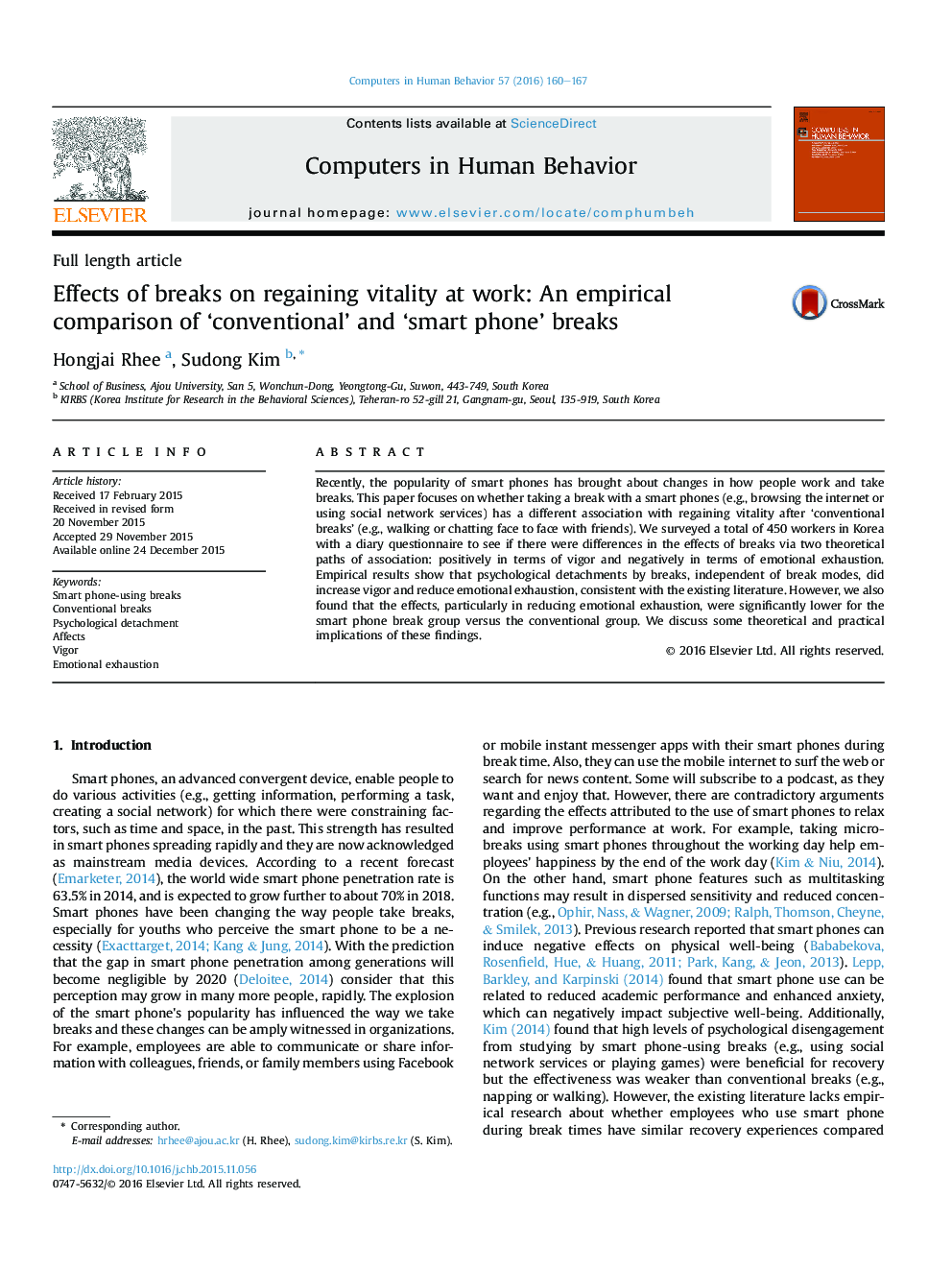| کد مقاله | کد نشریه | سال انتشار | مقاله انگلیسی | نسخه تمام متن |
|---|---|---|---|---|
| 350225 | 618433 | 2016 | 8 صفحه PDF | دانلود رایگان |
• We examined the effect of psychological detachment (PD) on revitalizing energy.
• PD increases vigor through positive affect.
• PD decreases emotional exhaustion through negative affect.
• The two types of breaks moderate the relationship of PD and negative affect.
• Two types of breaks do not moderate the relationship of PD and positive affect.
Recently, the popularity of smart phones has brought about changes in how people work and take breaks. This paper focuses on whether taking a break with a smart phones (e.g., browsing the internet or using social network services) has a different association with regaining vitality after ‘conventional breaks’ (e.g., walking or chatting face to face with friends). We surveyed a total of 450 workers in Korea with a diary questionnaire to see if there were differences in the effects of breaks via two theoretical paths of association: positively in terms of vigor and negatively in terms of emotional exhaustion. Empirical results show that psychological detachments by breaks, independent of break modes, did increase vigor and reduce emotional exhaustion, consistent with the existing literature. However, we also found that the effects, particularly in reducing emotional exhaustion, were significantly lower for the smart phone break group versus the conventional group. We discuss some theoretical and practical implications of these findings.
Journal: Computers in Human Behavior - Volume 57, April 2016, Pages 160–167
